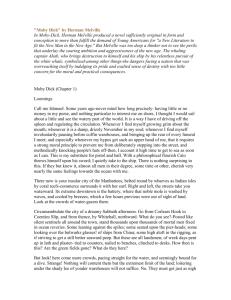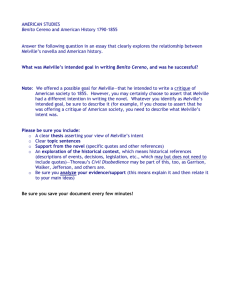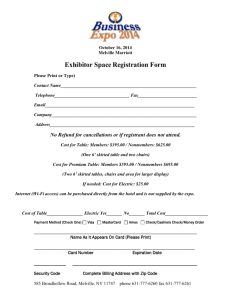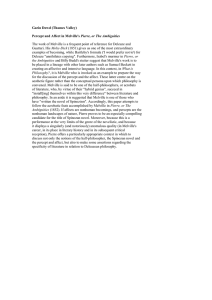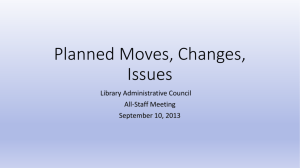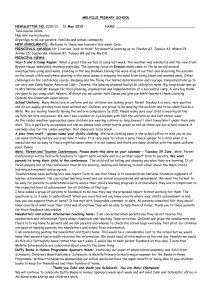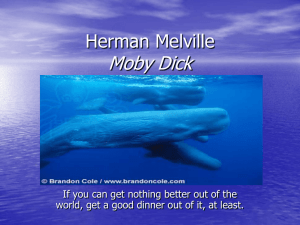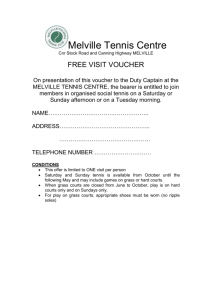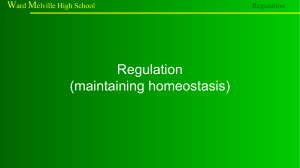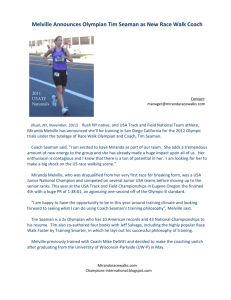Literature Study Guide - St. James R
advertisement
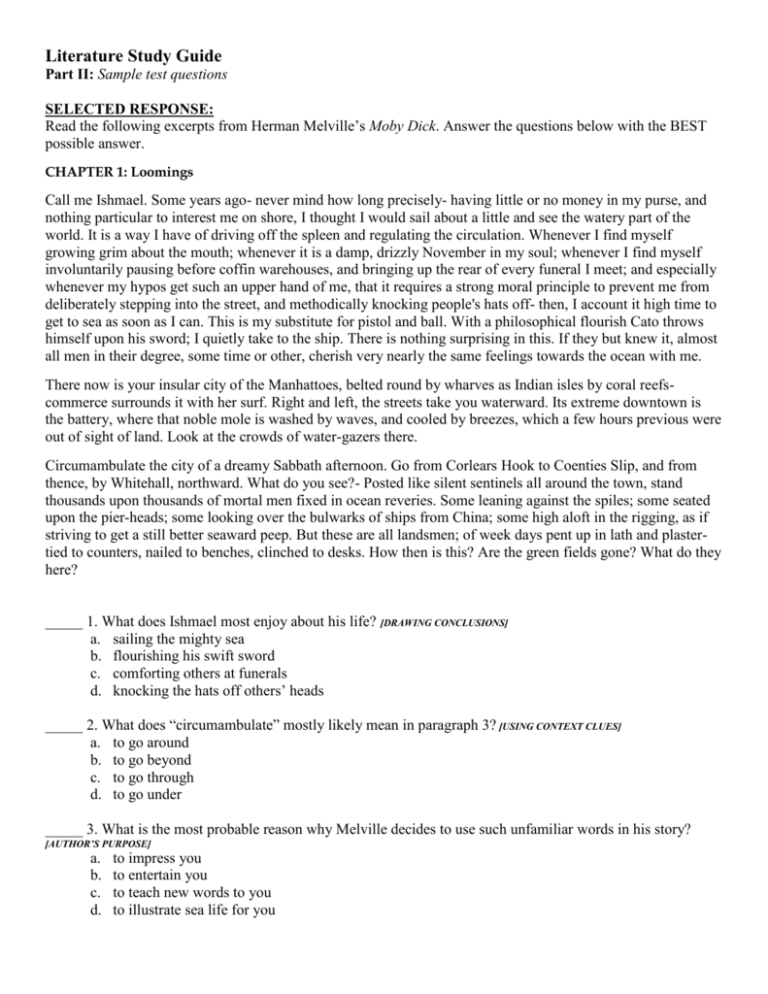
Literature Study Guide Part II: Sample test questions SELECTED RESPONSE: Read the following excerpts from Herman Melville’s Moby Dick. Answer the questions below with the BEST possible answer. CHAPTER 1: Loomings Call me Ishmael. Some years ago- never mind how long precisely- having little or no money in my purse, and nothing particular to interest me on shore, I thought I would sail about a little and see the watery part of the world. It is a way I have of driving off the spleen and regulating the circulation. Whenever I find myself growing grim about the mouth; whenever it is a damp, drizzly November in my soul; whenever I find myself involuntarily pausing before coffin warehouses, and bringing up the rear of every funeral I meet; and especially whenever my hypos get such an upper hand of me, that it requires a strong moral principle to prevent me from deliberately stepping into the street, and methodically knocking people's hats off- then, I account it high time to get to sea as soon as I can. This is my substitute for pistol and ball. With a philosophical flourish Cato throws himself upon his sword; I quietly take to the ship. There is nothing surprising in this. If they but knew it, almost all men in their degree, some time or other, cherish very nearly the same feelings towards the ocean with me. There now is your insular city of the Manhattoes, belted round by wharves as Indian isles by coral reefscommerce surrounds it with her surf. Right and left, the streets take you waterward. Its extreme downtown is the battery, where that noble mole is washed by waves, and cooled by breezes, which a few hours previous were out of sight of land. Look at the crowds of water-gazers there. Circumambulate the city of a dreamy Sabbath afternoon. Go from Corlears Hook to Coenties Slip, and from thence, by Whitehall, northward. What do you see?- Posted like silent sentinels all around the town, stand thousands upon thousands of mortal men fixed in ocean reveries. Some leaning against the spiles; some seated upon the pier-heads; some looking over the bulwarks of ships from China; some high aloft in the rigging, as if striving to get a still better seaward peep. But these are all landsmen; of week days pent up in lath and plastertied to counters, nailed to benches, clinched to desks. How then is this? Are the green fields gone? What do they here? _____ 1. What does Ishmael most enjoy about his life? [DRAWING CONCLUSIONS] a. sailing the mighty sea b. flourishing his swift sword c. comforting others at funerals d. knocking the hats off others’ heads _____ 2. What does “circumambulate” mostly likely mean in paragraph 3? [USING CONTEXT CLUES] a. to go around b. to go beyond c. to go through d. to go under _____ 3. What is the most probable reason why Melville decides to use such unfamiliar words in his story? [AUTHOR’S PURPOSE] a. b. c. d. to impress you to entertain you to teach new words to you to illustrate sea life for you _____ 4. In the selection above, which sentence best illustrates the main idea of the passage? [MAIN IDEA] a. “Some years ago- never mind how long precisely- having little or no money in my purse, and nothing particular to interest me on shore, I thought I would sail about a little and see the watery part of the world.” b. “With a philosophical flourish Cato throws himself upon his sword; I quietly take to the ship.” c. “Posted like silent sentinels all around town, stand thousands upon thousands of mortal men fixed in ocean reveries.” d. “But these are all landsmen; of week days pent up in lath and plaster- tied to counters, nailed to benches, clinched to desks.” _____ 5. What mode of writing does Melville use in Moby Dick? [WRITING STYLES] a. epic poetry b. business letter c. fictional novel d. persuasive essay CONSTRUCTED RESPONSE: Read each of the questions below and answer in complete sentences, using details from the passage to support your answer. 6. How does Melville demonstrate his sense of humor in the passage above? [AUTHOR’S PURPOSE] __________________________________________________________________________________________ __________________________________________________________________________________________ __________________________________________________________________________________________ __________________________________________________________________________________________ __________________________________________________________________________________________ 7. Melville uses a great deal of difficult, unfamiliar language in his writing. Explain his reason for using such language, providing two examples of how he successfully defines these words for you through the context of the story. [MULTI-STEP QUESTION / USING CONTEXT CLUES] __________________________________________________________________________________________ __________________________________________________________________________________________ __________________________________________________________________________________________ __________________________________________________________________________________________ __________________________________________________________________________________________ 8. Record one sentence from the selection above on the lines below. Then, paraphrase Melville’s words in today’s language. [PARAPHRASE] __________________________________________________________________________________________ __________________________________________________________________________________________ __________________________________________________________________________________________ __________________________________________________________________________________________
